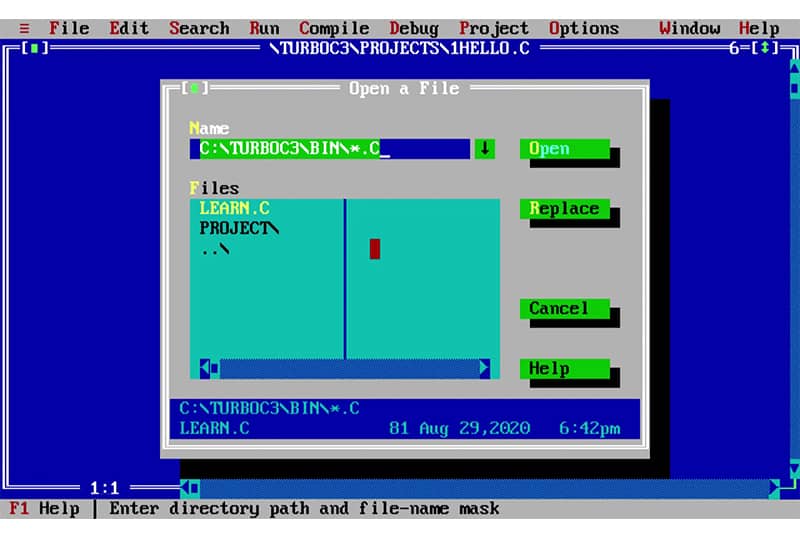
3.0 implemented AT&T C++ 2.1, the most recent at the time. Initially released as an MS-DOS compiler, 3.0 supported C++ templates, Borland's inline assembler, and generation of MS-DOS mode executables for both 8086 real mode and 286 protected mode (as well as 80186). Turbo C++ 3.0 was released on November 20, 1991, amidst expectations of the coming release of Turbo C++ for Microsoft Windows. This compiler supported the AT&T 2.0 release of C++. The initial version of the Turbo C++ compiler was based on a front end developed by TauMetric (later acquired by Sun Microsystems and their front end was incorporated in Sun C++ 4.0, which shipped in 1994). The latter was able to generate both COM and EXE programs and was shipped with Borland's Turbo Assembler for Intel x86 processors.

Version 1.01 was released on February 28, 1991, running on MS-DOS. Turbo C++ 1.0, running on MS-DOS, was released in May 1990. As the developer focused more on professional programming tools, later Turbo C++ products were made as scaled down versions of its professional compilers.

It was designed as a home and hobbyist counterpart for Borland C++. Turbo C++ is a discontinued C++ compiler and integrated development environment originally from Borland.


 0 kommentar(er)
0 kommentar(er)
